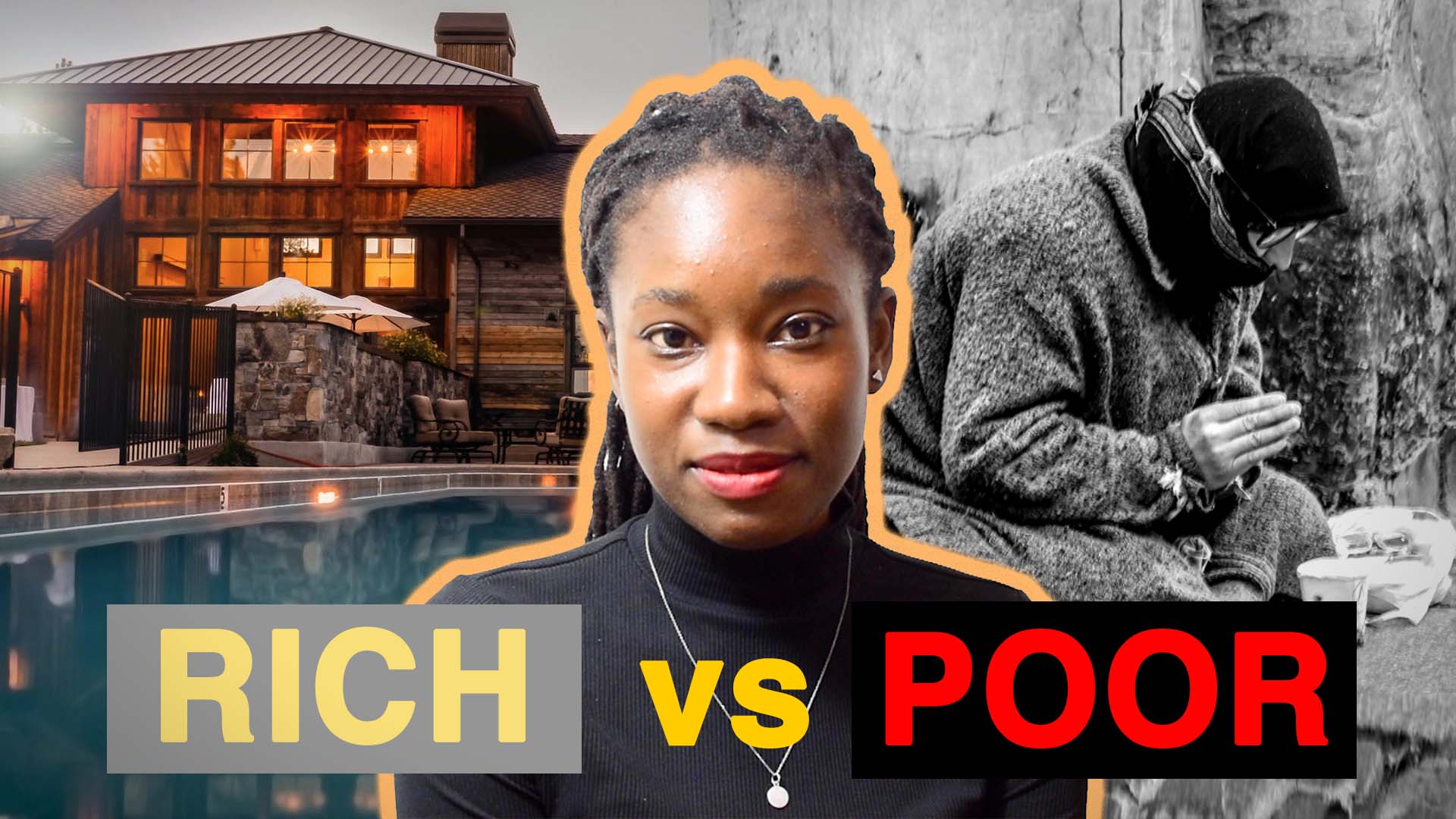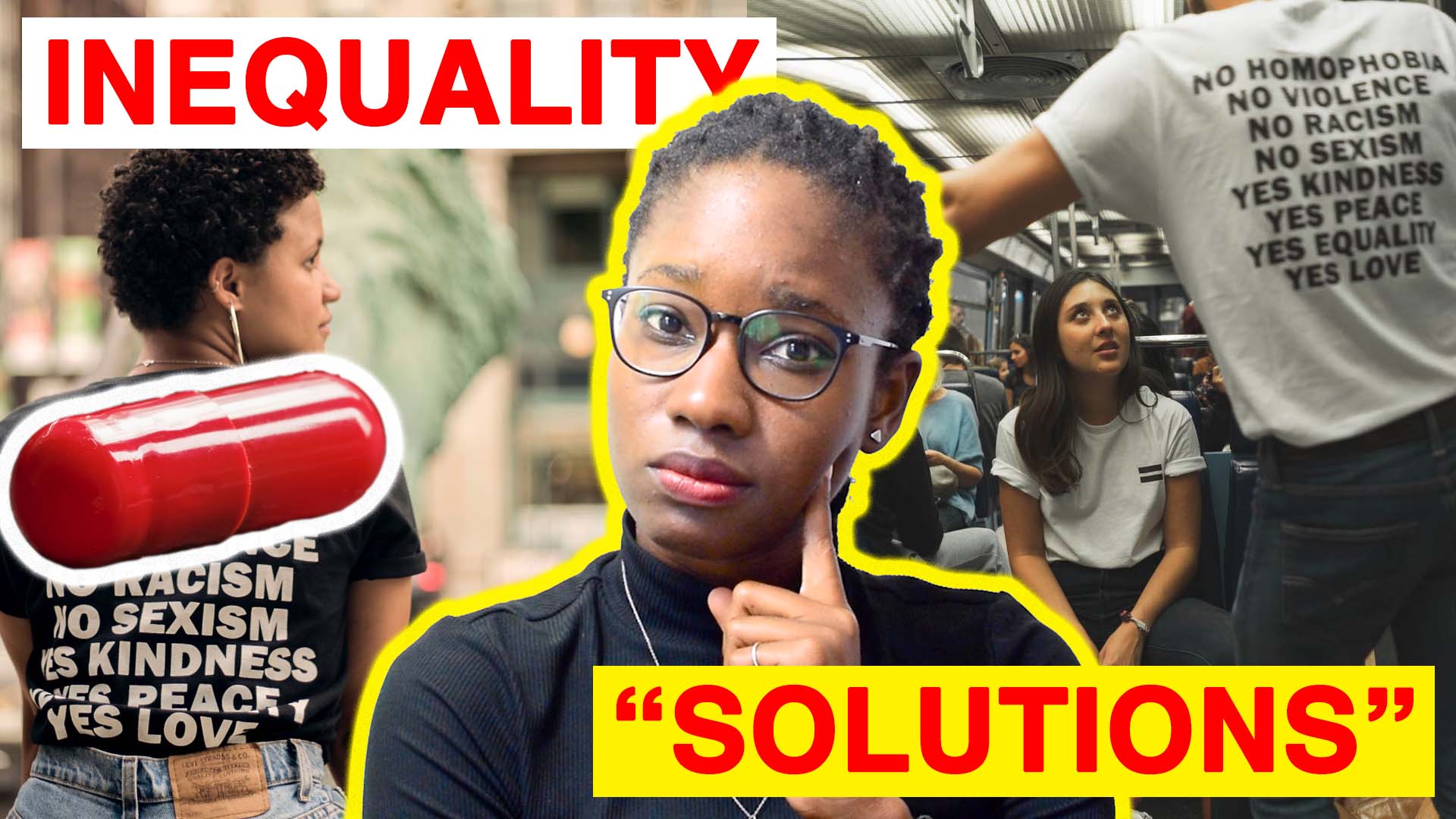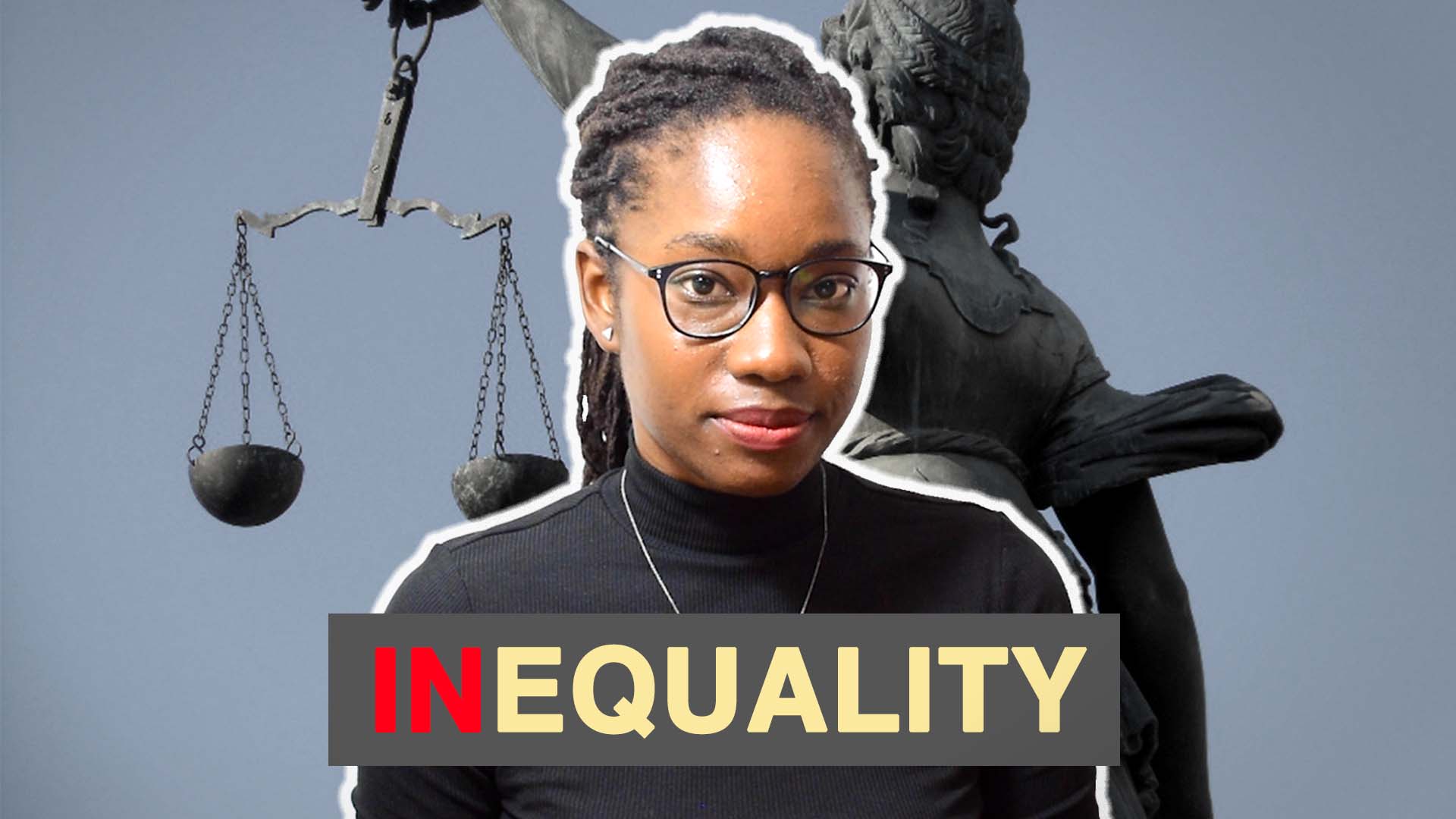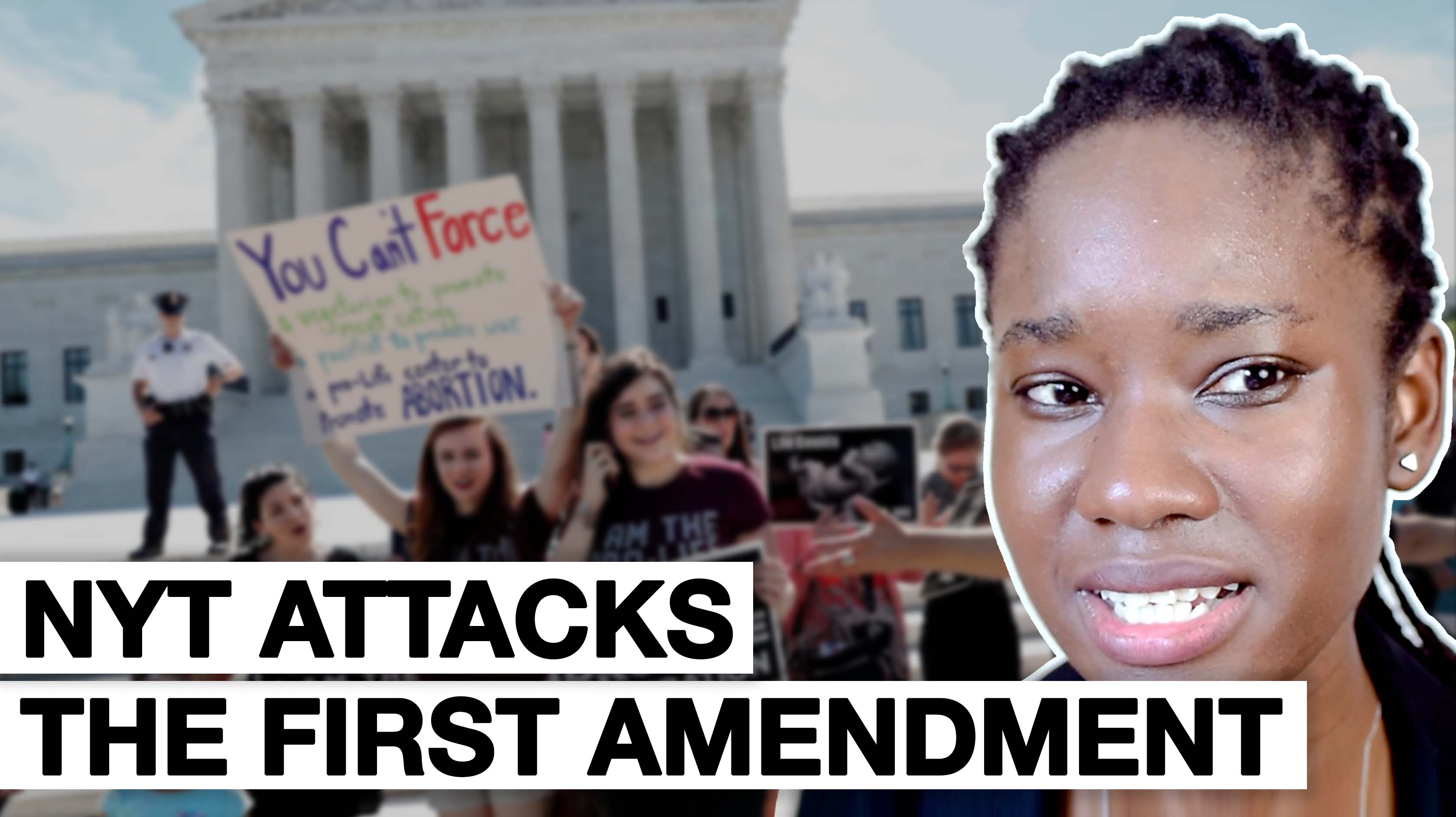“What Can Compare to Slavery, Right?”
Inequality Part 2
I have argued that inequality is the natural state of human affairs and that people may want to combat it. I have also argued that combating inequality should be done in ways that do not infringe on the freedom and agency of others. I specifically talked about focusing on creating self-sufficiency rather than rewarding people with the end products of material wealth. Now, I want to delve into the current data that tells us we live in an unequal society and focus on how data is used to play into people’s perception of the world they live in as being unfair. I think people should be skeptical of what they are constantly being told. Politicians present the world as unjust in order to propose solutions to the problems they can solve. I think it’s important to understand that this is a politician’s job because their livelihood depends on the public’s positive perception of them. A politician’s job is to tell the public what they want to hear, even if the politician comes from a place of positive intention or is ignorant of more information. I want to bring this point up for two reasons: the first is to question what politicians say, and the second is to point out that those who try to help others, with sincerity or deceit, may be ignoring the effects of constantly pushing biased or incomplete information and ignoring other avenues of helping others.
Before I continue, I am neither a statistician nor an economist, but I do understand certain concepts.
1. The Approach to Data on Wealth Inequality Matters
First of all, data is like a woman getting hit on. The same data can present a different answer depending on which way the data is approached. The research should not be presented without holding all relevant variables constant, specifically those that are known to influence the outcome. For example, the data may not even be collected for. When talking about income, showing that groups with the same education level earn different amounts on average is near meaningless. Not all education is the same, whether in quality or degree of relevant specialization to the job earned. It is difficult to find data that holds other variables constant when describing metrics like income. I would think that this kind of data is difficult to collect in the first place, so it is likely that the data does not present the entire picture. Groups can be talked about in terms of black and white, but what happens when they are broken down further into groups like African immigrants versus native black Americans, or Americans with Eastern European heritage versus Western European heritage, or Italian Americans versus Irish Americans? The results will be different. Certain people within highly successful groups may not be doing very well, but people pay no attention to them because their larger umbrella group is doing well. And conversely, people may receive preferential treatment when they belong to a subgroup that is doing very well although the larger umbrella group is not. Class is another misleading category because it is mostly transient, but the statistical category does not change when analyzing data over time. So when people talk about the rich getting richer and the poor getting poorer, they are not necessarily the same people over decades or generations. There is a proportion of the “rich” that has inherited wealth, but that proportion has been steadily on the decline.
Using income to describe poverty or riches can be misleading because a person’s income may vary drastically from year to year depending on seasonality of profits due to the industry or cumulative earnings such as capital gains. Additionally, higher income doesn’t necessarily mean a better ability to buy more things because the individual may have more dependent financial burdens like college or medical expenses, or location-dependent living expenses, to name a few. So, those screaming about the one percent (1%) may be screaming at those who do not have much left over or who they will become as part of that 1% later on in life. When one group is being compared against the other, the age distribution within the group may differ, and age is positively correlated with income. When talking about household income, for example, there may be more than one person working in a given household. There are probably many more examples, but few seem aware of them. For a country so focused on pitting groups against each other and using data to prove why doing this is reasonable, the entire country should know that they would need to be very competent in understanding data in order to glean a narrative from it.
2. The Data on Inequality Does Not Support the Narrative of White Supremacy
Second of all, the data supporting the current narrative of white supremacy is tenuous at best. Currently, the standard trope on TV is that the world is full of white supremacy or some variation of that idea. This narrative is generally supported by data showing minority groups, especially blacks as a statistical group earning less income on average than whites. A lack of historical legal power due to slavery and preferential job offerings or community building are often used to explain current trends. And if none of those explain the disparity, then individual racism is the cause. This explanation ignores the fact that Asians and Jews earn more median income (see sources below). (I apologize for having to describe people in groups in order to respond to mainstream narratives.) Right now, anytime I see data on blacks and whites, I think other groups should be used as well. Both Asians and Jews have economically succeeded in the United States despite historical discrimination and the experience of white supremacy through state and individual prejudice and bias. If we apply the logic that lower group income is the result of discrimination via supremacy of the higher income group, then whites, who on average earn less than Asians or Jews, must be under their supremacy. However, nobody argues whites are under Jewish or Asian supremacy, so does the same data used to define oppression between blacks and whites in the US not matter when talking about other groups?
One counterargument could be that the causal agent for one group’s success does not have to be the same for another group’s success. But when both groups experienced discrimination while one is now doing well, discrimination can no longer be claimed to be the cause of inequality. From what I see, the data shows that groups can and have succeeded in spite of discrimination. Therefore, discrimination does not automatically mean being at the lower end of income earners. Wouldn’t that prompt our society to say, “Maybe there is something else going on?” It doesn’t have to be one thing; it could be a combination of things.
Another counterargument could be that the discrimination was not as bad for one group. Like, what can compare to slavery, right? Well, apart from the difficulty and/or disrespect in quantitatively defining human emotions such as suffering, slaves are slaves. The only people who were slaves were slaves. No one after slavery ended was a slave. Then there’s the fact that other groups may have been treated just as badly as slaves without bearing the title. One example is the Irish. I understand that this country has a history of racism, but if anyone actually wants to know the reason why something happened, it involves asking why and leaving no stone unturned to find that answer. It’s not enough to simply have a premade answer in one’s head, especially after the conditions in the past which made that answer acceptable, like legally encoded and enforced discrimination, have changed. Everything is researched from this conclusion, working backwards, rather than forward by asking what the cause might be. Instead, one should look at other countries and nations, perhaps, and not just focus on the US and everything that’s happened here. The US is not the only country to have experienced racial tensions. What can be changed, knowing that other countries had a history of violence against groups, mostly not across color lines after all? And for every group that later comes in, they are being added to this history, even though they may not have the “oppressed” or “oppressor” role where they came from. But as soon as they come here, they take on the “oppressed” persona, which is strange. I think the conclusion should be reconsidered. I have attempted to find papers on this, and the majority do not examine other variables that may have influenced outcomes.
I know the majority of the trends I present due to having read books by Thomas Sowell, who is an incredible source. There are also other sources that show complicated statistics, such as black Americans tending to earn degrees that are not in highly specialized or in-demand areas (see below). And I know people say, “Oh, it’s not their fault.” Well, at some point, a person has to take responsibility for themselves, regardless of outside influence.
I couldn’t find much data, outside of Sowell’s, on controlling for other variables. I think it’s interesting that there’s not much data on these topics, as people should be taking these counter arguments seriously. There is data on Asian incomes, which I think is becoming well known. I also couldn’t find much easily available data on people of Jewish heritage, again outside of Sowell. And it’s interesting that Jews are now considered whites, knowing that they have been a long persecuted group, including in America.
3. There Are Other Answers to Solving the Wealth Gap Than Discrimination
Third of all, even if there is a statistical difference in outcomes like earnings, it doesn’t make sense to assume discrimination or racism is the reason for those differences. It could be due to characteristics within the group itself, as simple as a person’s desire to do something different. It could be due to culture, separate from race and associations with culture. Data on inequality can be explained by other things such as IQ, or family structure, though maybe not as a whole. And the data is out there. Why aren’t the other data given as much attention? I believe that people may be afraid that it puts the responsibility or onus on the “victims.” Well, how else will things change? This is really interesting to me as a question. Whether or not influence is internal or external, how will things change? Think about this. If it is external, why focus on changing other people? Why not focus on something that you can change, that does not need to involve controlling others, especially knowing that the presence of discrimination does not mean that groups cannot do well?
Economic prosperity often comes before the lessening of discrimination, not the other way around. It also often has the opposite correlation, where you are discriminated against because you are doing well. Striking examples that I don’t hear mentioned often but will never forget are Indians in Uganda and Chinese in Malaysia, historically.
And I know that even then the blame would still be outsourced to others. But I believe it’s up to the individual to decide how to respond to events or actions. As a teenager, my mother used to annoy me sometimes, and my father would say, “You can’t control her, Desi-Rae. You have to learn to control your own emotions. It is up to you how you want to respond.” Whether or not that was the best response, it is a true statement. One can’t control others. People can be forever treated as puppets being pulled around on a string, but that leaves it up to everyone else to change the behavior rather than the individual or group. How is this going to work out? How is this not treating them as a child with no agency of their own?
Fourth of all, focusing on discrimination to explain inequality allows people to ignore what is going on in front of their own eyes in their own lives, not on the TV. But I’m going to stop here for today. Read more in Part 3.
Edited by Em Solis
This post is continued here: Inequality Series Part 3
The first part of this series is here: Is Inequality a Problem to Be Solved?
A video and podcast version are available.
JTOL is Fan-Funded. Please support.
Sources:
SUCCESS OF SUBGROUPS OR OTHER MINORITIES
https://en.wikipedia.org/wiki/List_of_ethnic_groups_in_the_United_States_by_household_income
https://en.wikipedia.org/wiki/List_of_ethnic_groups_in_the_United_States_by_per_capita_income
“Amy Chua and Jed Rubenfeld, The Triple Package: How Three Unlikely Traits Explain the Rise and Fall of Cultural Groups in America (New York: The Penguin Press, 2014), p. 42. west indians
“Secret Weapon,” (https://www.amazon.com/Triple-Package-Unlikely-Explain-Cultural/dp/0143126350)
The Economist, June 20, 2015, “Special Report: Nigeria,” p. 8” nigerian immigrants (http://www.economist.com/sites/default/files/20150620_sr_nigeria.pdf)
Excerpts From: Thomas Sowell. “Wealth, Poverty and Politics.”
http://www.nytimes.com/imagepages/2011/05/15/magazine/15-Leonhardt.html? (Graphing Religions and Income)
CORRELATION BETWEEN FAMILY STRUCTURE AND INCOME
https://scholar.harvard.edu/percheski/publications/family-structure-and-reproduction-inequalities
http://houseofdebt.org/2014/04/10/family-structure-and-inequality.html
http://www.fathers.com/statistics-and-research/the-extent-of-fatherlessness/
IQ AND INCOME
http://www.sciencedirect.com/science/article/pii/S0160289607000219 (Intelligence and socioeconomic success: A meta-analytic review of longitudinal research, Strenze)
http://www.sciencedirect.com/science/article/pii/S0160289607000219 (Do you have to be smart to be rich?)
https://thesocietypages.org/socimages/2008/02/06/correlations-of-iq-with-income-and-wealth/ (Article Citing Above Study)
http://www.sciencedirect.com/science/article/pii/S0160289615000148 (Differences in cognitive ability, per capita income, infant mortality, fertility and latitude across the states of India, Lynn, Yadav)
EARNING POTENTIAL DUE TO FIELD OF MAJOR CHOICE DIFFERING BY RACE
https://cew.georgetown.edu/wp-content/uploads/AfricanAmericanMajors_2016_web.pdf
http://theop.princeton.edu/reports/wp/ANNALS_Dickson_Manuscript%20(Feb%2009).pdf (Race and Gender Differences in College Major Choice, Dickson)
http://public.econ.duke.edu/~psarcidi/arcidimetrics.pdf (Ability Sorting and the Returns to College Major, Arcidiacono)









[…] Part 2 of this series on inequality, the wealth gap, and discrimination is here: Inequality Series Part 2 […]
[…] despite the lack of proof other than DATA, which is manipulated in its presentation as detailed in Part 2, it does not matter in terms of advancement. Groups have succeeded in the past in spite these […]